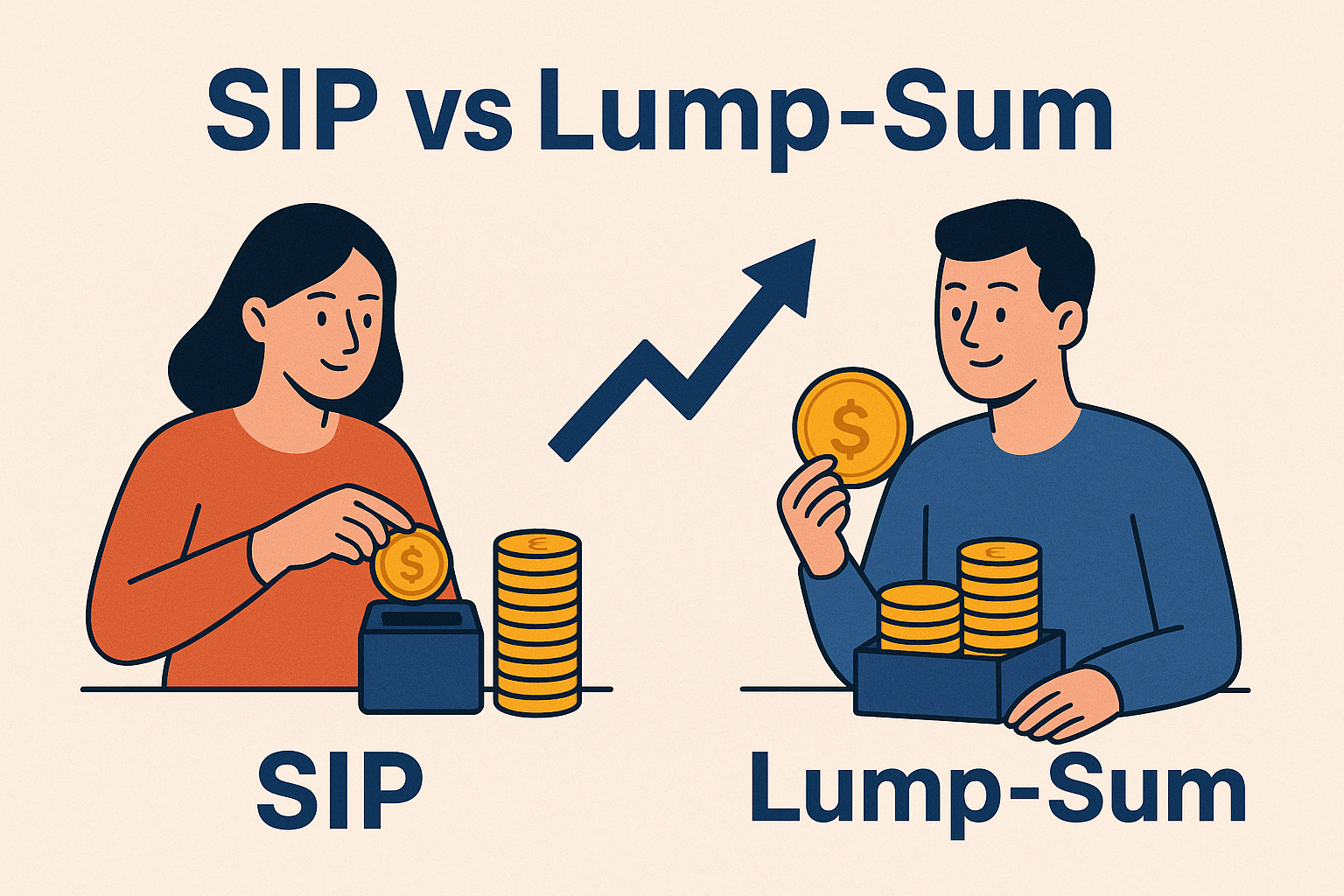Investing is no longer just a choice. It has become a necessity for building long-term wealth and beating inflation. When it comes to mutual funds, many investors get confused between SIP investment plan strategies. Both options carry unique benefits, and the right choice depends on your financial goals, income pattern, and market condition.
This comparison of SIP vs Lump-Sum will help you make a smart investment decision.
What Is SIP?
SIP (Systematic Investment Plan) is a simple and consistent approach where you invest a fixed amount regularly, usually every month. It follows the concept of rupee cost averaging. You buy more units when the market is down and fewer units when prices are high. This reduces market timing risk and supports steady wealth creation.
Benefits of SIP
• Suitable for salaried or regular income earners
• Protects against market volatility
• Encourages financial discipline
• Compounding grows your money gradually over time
What Is Lump-Sum Investment?
A lump-sum investment means putting a large amount into the market at one time. This strategy is useful when the market is stable or likely to rise. Investors who have strong market knowledge benefit the most from it.
Benefits of Lump-Sum
• Higher returns during a market uptrend
• Ideal for investors with a surplus amount
• Suitable for short to medium term planning
• Full capital starts compounding from day one
SIP vs Lump-Sum: Key Differences
| Factor | SIP | Lump-Sum |
|---|---|---|
| Investment Type | Monthly small contributions | One-time large investment |
| Market Timing Risk | Low | High |
| Best Suited For | Long-term financial goals | Market rallies and surplus funds |
| Emotional Control | High discipline | Requires confidence and patience |
| Flexibility | Very flexible | Less flexible once invested |
Which One Should You Choose?
Match your choice with your financial capacity.
✅ Choose SIP if:
• You earn a monthly salary
• You are a beginner
• You want lower risk
• You want to build saving habits
✅ Choose Lump-Sum if:
• You have a large amount like bonus or inheritance
• You understand market trends
• You can handle short-term volatility
Expert Tip
There is no need to depend on only one strategy. Many investors combine both. You can keep doing SIP for long-term goals and invest lump-sum during market dips. This balanced approach strengthens returns and manages risk well.
Conclusion
SIP vs Lump-Sum is not a debate where one wins forever. SIP supports disciplined investment and stable growth. Lump-sum offers faster gains during positive markets. The right choice depends on your goals, risk comfort, and available money. Stay committed to your plan and let compounding build your wealth over time.








Comments (0)